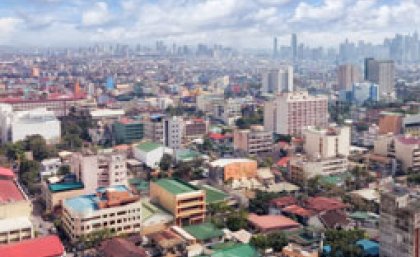
Water supplies in downtown Manila were beset with infrastructure problems such as leaks, widespread unauthorised access and contamination until 1997.
A senior executive of Manila Water will outline to a University of Queensland public seminar on Monday (14 September) how the company was able to dramatically improve drinking water, sewerage and sanitation services for more than six million residents.
The Global Change Institute is hosting the presentation by Mr (Perry) Virgilo Rivera, Manila Water’s chief operating officer- new business.
When Manila’s system losses reached 63 per cent, the Philippine Government was obliged to step in, Mr Rivera said.
“The National Water Crisis Act triggered the government-owned Metropolitan Waterworks and Sewerage System to enter into Public Private Partnerships,” he said.
“By introducing much-needed water reforms, Manila Water was able to increase service availability, and reduce water losses from 63 per cent in 1997 to 11 per cent in 2014.”
“These gains were supplemented by a shift in corporate culture and development of our workforce.”
A community program also was developed to ensure low-income areas’ reliable access to water.
UQ is partnering with Manila Water to further develop a range of innovative strategies to better manage water in large cities.
One large Australian water utility has offered its support for development of a university-utility partnership.
Gold Coast Water’s Professor Bill Capati said that following the new agreement between UQ and Manila Water, GCW would be keen to establish water management partnerships through UQ’s Advanced Water Management Centre.
The GCI’s sustainable water program director, Associate Professor Eva Abal, said UQ’s research opportunities with Manila Water could include market-based instruments and improved monitoring systems.
“Manila Water has demonstrated what can be achieved in a developing country with a large centre of population so we are eager to explore how UQ expertise can leverage such an innovative Asia-Pacific program,” Dr Abal said.
“Fresh water is vital for survival – and yet one in nine people globally don’t have access to clean drinking water and one in three lacks modern sanitation.”
“There is an increasing need for cutting-edge science and innovation in the water arena to address the global demands for sustainably produced water, a safe water supply and healthy waterways.”
Media: Dr Eva Abal, e.abal@uq.edu.au; GCI Communications - Ron Hohenhaus 0438 285 283, r.hohen@uq.edu.au
Media representatives are welcome to attend Monday’s seminar (RSVP preferred).
Resolving an urban water crisis through public-private sector reform: Presented by Mr Virgilio (Perry) Rivera Jr, Chief operating officer- new business, Manila Water Company, The Philippines.
Monday, 14 Sept 2015, 5.30 pm – 6.30 pm, The Art Gallery, Lower Level, Customs House, 399 Queen Street, Brisbane.
UQ’s Global Change Institute is an independent source of innovative research, ideas and advice for addressing the challenges of a changing world. GCI works to address the impacts of climate change, technological innovation and population growth through collaborative research across clean energy, food systems, healthy oceans, and sustainable water.









